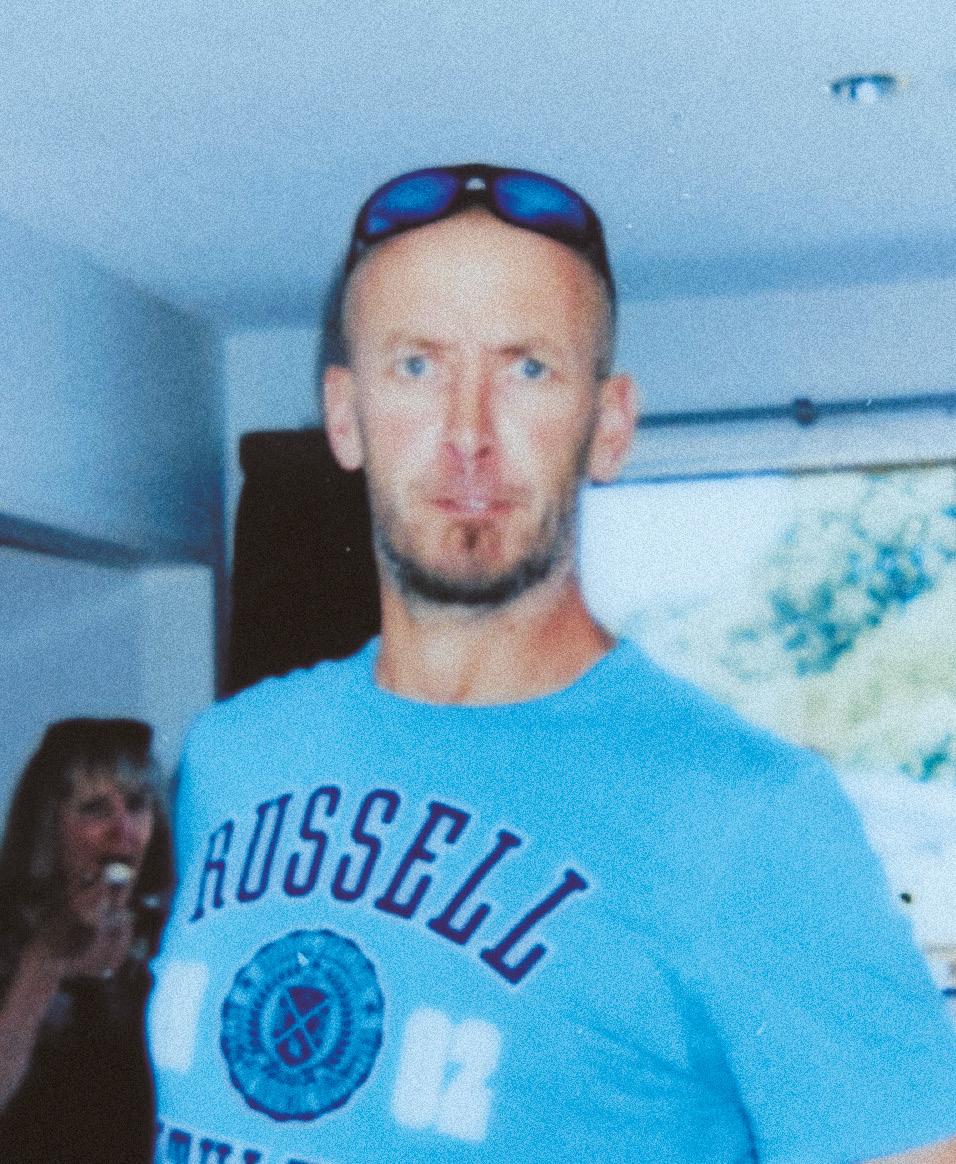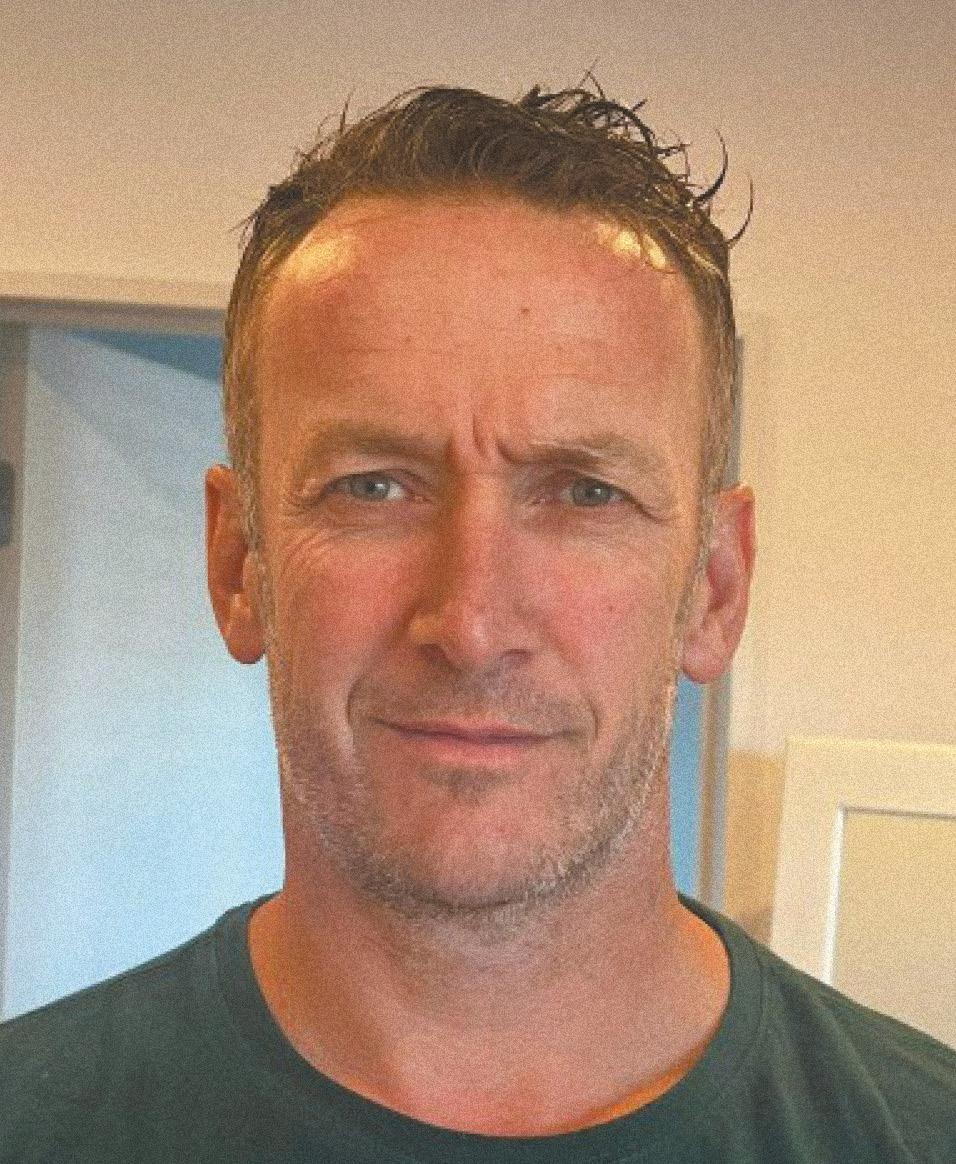
9 minute read
Hope, Healing and Second Chances
Since establishing the Prison Gate Brigade homes in New Zealand in 1884, The Salvation Army has remained dedicated to supporting those rebuilding their lives after serving time in prison. SALT sat down with Glen Buckner, national operations manager for The Salvation Army’s Reintegration Services, and Field Worker Aaron Cooper to learn more about these vital services and the life-changing difference they make.
WORDS Kelly Cooper
Aaron Cooper was introduced to methamphetamine when he was just 17 years old. ‘It was great,’ he recalls, ‘I finally felt good. I didn’t have any pain, and I felt invincible.’ Aaron quickly became addicted to meth and started dealing to support his habit. Not long after he was sentenced to prison.
Now, several years later, in his role as a field worker at Christchurch Reintegration Services, Aaron works with clients whose stories often have similar origins. After witnessing and struggling to process the traumatic death of a close friend at 15 years of age, Aaron began drinking alcohol and smoking marijuana to block out his grief and pain. Two years later, Aaron was the victim of sexual abuse. ‘I didn’t tell anyone. I pretended it didn’t happen, but I was so angry I was spiraling out of control,’ explains Aaron. ‘I became a beast. I was disrespectful and I hurt a lot of people. I didn’t want to live my life this way, but I had so much anger. I ended up in and out of court after a series of assault charges and then petty crime started to creep in. Eventually, I ended up in prison.’
Hope in the hurt
Following his release from prison and on the request of a concerned family member, Aaron sought help for his addiction and consented to rehab. He learned some good tools and remained clean for a period of time but ultimately fell back into addiction. Then an encounter with God one evening changed everything.
‘I was so frustrated with the life I was living,’ explains Aaron. ‘I yelled out, “If you are there, God, help me! Come and help me!” I immediately felt surrounded by love, compassion and forgiveness. All my hurt was gone. That night God took all my cravings, my addiction and my pain away. I can honestly say that I don’t carry it anymore.’
It is this love, compassion and forgiveness that Aaron now extends to his clients. ‘I can relate to a lot of these broken men. I know where they’ve been. They see me walk into the prison in my Salvation Army jacket looking healthy and they make assumptions about me. Then I show them a photograph of myself in full-blown addiction. I looked so unwell. It’s a good way to break the ice and they realise that I do understand. I say to them, “I actually get where you are. I know the pain and hurt you are carrying”. A lot of these men have suffered some form of abuse—physical, sexual, and emotional—and I know what that feels like,’ shares Aaron.
Client-focused care
For Aaron, every day as a field worker is different. Some days he will accompany his clients to appointments, probation meetings, counselling or job interviews. Other days Aaron spends time connecting over coffee, having a chat, or taking a walk down the beach. ‘The key thing is to give people the time and the support that they need,’ says Aaron.
National Operations Manager Glen Buckner couldn’t agree more. ‘People like Aaron are good at giving people all the time they require. While we offer multiple services for those reintegrating, what matters most is the time spent with individuals. We don’t offer a cookie-cutter experience, everything we provide is developed around an individual and their specific needs,’ explains Glen.
Glen has been part of the team since The Salvation Army opened the Christchurch Reintegration Service in 2007, which quickly grew to include services in Wellington, Invercargill, New Plymouth, Palmerston North, Hawke’s Bay and Auckland. Today he leads a staff of more than 40, who provide vital support services for individuals re-entering the community, helping them to rebuild their lives and prevent reoffending.
‘Somebody said to me the other week, “What’s it like hearing the same stories every week?” and I said, “They are similar stories, but different faces and different people each on their own journey”. All our clients have their own complexities and that’s part of the reason that I am still here,’ shares Glen.
Commitment to community
‘We offer a range of services, including supported accommodation for high-risk offenders across the country, emergency accommodation, work with deportees, community services for clients who are living with family, bail houses and a specialised programme for women. The accommodation side of what we provide is only a doorway to everything else that goes alongside it. We begin working with clients prior to their release from prison and then support them to find employment, rebuild connections with family members and develop life and social skills,’ shares Glen.
Glen acknowledges that their clients typically face many obstacles as part of their reintegration. Access to basic necessities such as identification, opening a bank account and purchasing a cell phone, all present real challenges. ‘Some of our clientele are harder to connect with; we’re not their friend or their family, but for many we are the closest thing they have to them. It’s essential they understand that when we pick them up from prison, we are not judging them. Yes, they’ve been to prison, but they’ve served their time. Their crime is part of who they were, and it doesn’t make them who they are long term.
‘We have the ability to reach about 600 people per year, but we don’t ever say goodbye to anyone, so we could end up with 1000 people on our books. Since Covid-19, the numbers of people we have seen through our services have dropped because we have been supporting people for longer. Some require accommodation for six to nine months. Some clients stay a year or longer. That’s huge, the media would have you think that people are reoffending, but that’s not the case. Many are reintegrating successfully into our communities and rebuilding their lives,’ says Glen.
Glen desires to see a shift in attitudes towards people who have been incarcerated. ‘What we all need to understand is that people are going to be released from prison in New Zealand. There are very few people who will be in prison for life. Most people have more connections with people in prison than they are aware of. The reality is people are coming out of prison, so we need to make sure our communities are able to take them back and help them. If we support their reintegration, we can prevent future victims.’
Faith for the future
‘We have a really strong national team, which includes people from many walks of life—some who have a prison background and some who don’t. People who have been teachers, nurses, who owned their own businesses or who are straight from university. We work hard to employ the best people who each have something to offer. I can’t fault the work our team does,’ shares Glen, ‘they are all motivated by a genuine commitment to the work they do.
‘Not all of our staff have a Christian faith, but they understand that it’s the cornerstone of who we are. When there is an opportunity, we pray before and after our assessments. We put a whole lot of faith into what we do, trusting that God will give us what we need,’ explains Glen.
‘Everyone who accesses our service has self-referred, so even before they come, they know that we are a faithbased organisation. Many share that they used to go to church or attend Sunday school as a child, but you don’t have to have a faith background to receive our services. Our doors are open to everyone,’ says Glen.
Reflecting on their respective journeys, both Glen and Aaron attest to the hand of God in leading them to work for Reintegration Services. ‘God has definitely taught me some hard lessons,’ shares Aaron, ‘but my experiences have moulded me into who I am today. I can see that God had a plan for my life. I have three core values that I want to share with the clients I work with: I want to show them compassion, forgiveness and empathy. Every day I want to be better than I was yesterday and to do my best by Jesus. If I can do that daily and shine a light for these men and women who are hurting, then I am a happy man.’
‘This work has greatly added to my own faith,’ adds Glen. ‘It’s helped me to find a dimension of who I am. I didn’t have a lot of self-esteem when I was growing up. God has always been important in my life but the level of that has changed over the years, particularly in this work. We see the evil and the bad in the world in this job, but there must be a God when you see the reconciliation in families, victims and offenders, and the transformation of people who see worth in who they are. Seeing how Jesus works and connects with these people as individuals and their communities is exciting.
‘I am reminded of [Salvation Army co-founders] William and Catherine Booth’s dedication to showing love in action,’ shares Glen. ‘We represent a voice that is hardly ever heard. These people are literally at the bottom of every list. To support our clients in turning their lives around is an enormous privilege, and if they get to know God in the process, well, that’s just fantastic!’












